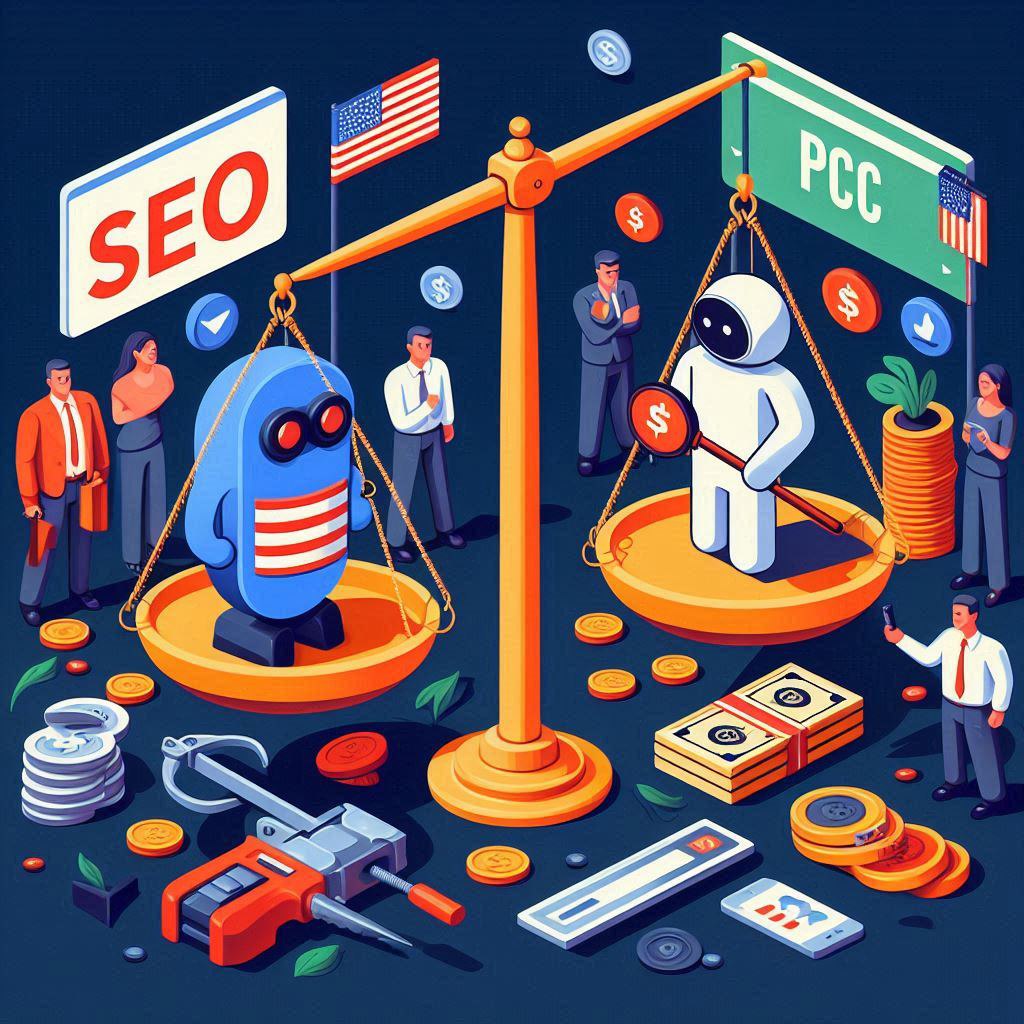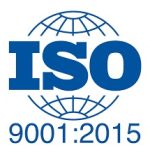When building an online presence, businesses often face a crucial decision: should they focus on SEO (Search Engine Optimization) or PPC (Pay-Per-Click) advertising? Both strategies can be powerful tools for attracting traffic and generating leads, but they take different approaches. While SEO focuses on improving organic search rankings, PPC drives traffic through paid ads. Deciding which one to use depends on your business goals, budget, and timeline.
Introduction
In the world of digital marketing, SEO and PPC are two popular methods to increase visibility on search engines. Both are designed to drive traffic to your website, but the way they do this is vastly different. SEO is the practice of optimizing your website to rank higher in organic search results, while PPC involves paying for ads that appear at the top of search engine results pages (SERPs). Each strategy has its own advantages, and choosing the right one for your business depends on several factors.
What is SEO?
Search Engine Optimization (SEO) is all about improving your website’s visibility in search engine results organically—without paying for placement. SEO involves a variety of tactics, including keyword research, content creation, on-page optimization, and earning backlinks from other websites. The goal is to create a website that search engines like Google can easily understand and rank highly for relevant searches.
Key SEO Techniques:
- Keyword Research: Identify relevant keywords your target audience is searching for and naturally incorporate them into your content.
- Content Creation: Develop high-quality, informative content that meets the needs of your audience while incorporating relevant keywords.
- On-Page Optimization: Ensure that your titles, meta descriptions, headers, and images are optimized for search engines.
- Technical SEO: Focus on improving your site’s performance, including page load speeds, mobile-friendliness, and the overall user experience.
- Link Building: Build a strong backlink profile by earning links from authoritative websites, which signals credibility to search engines.
Advantages of SEO:
- Cost-Effective in the Long Run: SEO requires an initial investment of time and resources, but once your site ranks well, you can enjoy consistent traffic without ongoing costs.
- Trust and Credibility: Users tend to trust organic results more than paid ads, as they perceive them as more credible.
- Sustainable Traffic: Once established, SEO can bring continuous traffic to your website without the need for ongoing spending.
- Long-Term Results: Unlike paid ads that stop driving traffic once the budget runs out, the effects of SEO can last for months or even years.
What is PPC?
Pay-Per-Click (PPC) advertising is a model where businesses pay for each click their ad receives. These ads appear at the top or bottom of search engine results pages and are marked as “sponsored” listings. Google Ads is the most popular platform for PPC, but Bing Ads and social media platforms like Facebook and Instagram also offer paid advertising options.
Key PPC Features:
- Keyword Targeting: You bid on keywords that are relevant to your business, ensuring your ad shows up when users search for those terms.
- Ad Copywriting: Your ads need to be compelling, encouraging users to click through to your site.
- Budget Control: PPC allows you to set a daily or monthly budget, ensuring you don’t spend more than you can afford.
- Targeting Options: PPC enables highly specific targeting based on demographics, location, devices, and even user behavior.
- Landing Pages: Each ad should lead to a dedicated landing page designed to convert visitors into leads or customers.
Advantages of PPC:
- Instant Traffic: Unlike SEO, which takes time to build, PPC delivers immediate visibility and traffic as soon as your ads go live.
- Precise Targeting: PPC allows you to target specific audiences based on a range of criteria, making it a great option for businesses looking to reach certain demographics or geographic areas.
- Flexible Budgeting: You can control exactly how much you spend, and PPC offers options for businesses of all sizes.
- Measurable Results: You can track every aspect of your PPC campaign, from click-through rates to conversions, making it easier to calculate ROI.
Comparing SEO and PPC
SEO and PPC are both effective ways to drive traffic, but they serve different purposes and require different investments. Here’s a breakdown of the major factors to consider:
Cost:
SEO is a long-term investment that doesn’t require direct payment for each click or visitor. However, it involves upfront costs such as content creation, keyword research, and technical improvements. PPC, on the other hand, involves direct costs every time someone clicks on your ad. If your budget allows for ongoing spending, PPC can deliver immediate results, but SEO will be more cost-effective in the long run.
Speed of Results:
SEO takes time to build momentum. It can take several months to see significant improvements in your rankings and organic traffic, depending on the competitiveness of your industry. PPC, however, delivers immediate traffic as soon as you launch your ads. This makes PPC ideal for businesses that need quick results, such as during a product launch or seasonal sale.
Credibility and Trust:
When users see your site ranking high in organic search results, they often perceive it as more credible than an ad. While PPC ads can drive significant traffic, some users are skeptical of clicking on paid listings because they view them as less trustworthy. If your goal is to build long-term credibility, SEO is the better choice.
Longevity:
SEO delivers long-lasting results. Once you achieve high rankings, you can continue to attract traffic for months or even years, with minimal ongoing costs. PPC, on the other hand, is only effective while you’re paying for ads. As soon as your budget is exhausted, your ads stop showing, and the traffic dries up.
Control and Flexibility:
PPC offers more control over when and how your ads appear. You can adjust your budget, target specific keywords, and refine your campaigns in real-time based on performance data. SEO is less flexible; once changes are made to your site, it takes time for search engines to reflect those changes. However, SEO’s benefits grow over time, making it more stable in the long run.
Which Strategy Should You Choose?
The choice between SEO and PPC depends on your business’s specific needs and goals.
Choose SEO if:
- You are looking for a long-term strategy that will deliver sustainable traffic.
- Your budget is limited, but you can invest time and resources into building organic rankings.
- You want to build credibility and trust with your audience over time.
Choose PPC if:
- You need immediate traffic and fast results.
- You have a flexible budget and are willing to spend on paid ads.
- Your goal is to target specific audiences or geographic areas with precision.
- You’re running time-sensitive promotions, such as a product launch or a sale.
Combining SEO and PPC for Maximum Impact
For many businesses, the best approach is to combine SEO and PPC. Each strategy complements the other, and when used together, they can maximize your visibility and drive more traffic.
Benefits of Combining SEO and PPC:
- Immediate and Long-Term Traffic: PPC provides immediate visibility while SEO works to build long-term rankings. This combination allows you to get traffic right away while building sustainable growth for the future.
- Increased Brand Visibility: Appearing in both organic and paid search results increase your brand’s presence and can lead to higher click-through rates.
- Data Sharing: Insights from PPC campaigns, such as the best-converting keywords, can be used to refine your SEO strategy. Similarly, top-performing SEO keywords can be targeted in PPC campaigns to generate more leads.
- Maximized ROI: By leveraging both strategies, you can capture more opportunities and balance short-term gains with long-term success.
Conclusion
Both SEO and PPC are effective strategies for driving traffic and increasing conversions, but they serve different purposes. SEO is a long-term investment that builds credibility and provides lasting results, while PPC offers immediate visibility and precise targeting. Deciding which one is best for your business depends on your goals, budget, and the timeline in which you need results.
For many businesses, the best solution is to use both SEO and PPC together. By balancing these two strategies, you can maximize your online presence, attract more leads, and ensure sustainable growth.
As marketing expert Seth Godin once said, “Marketing is no longer about the stuff you make, but about the stories you tell.” Whether through organic search or paid ads, SEO and PPC allow you to tell your story and connect with your audience in meaningful ways.








